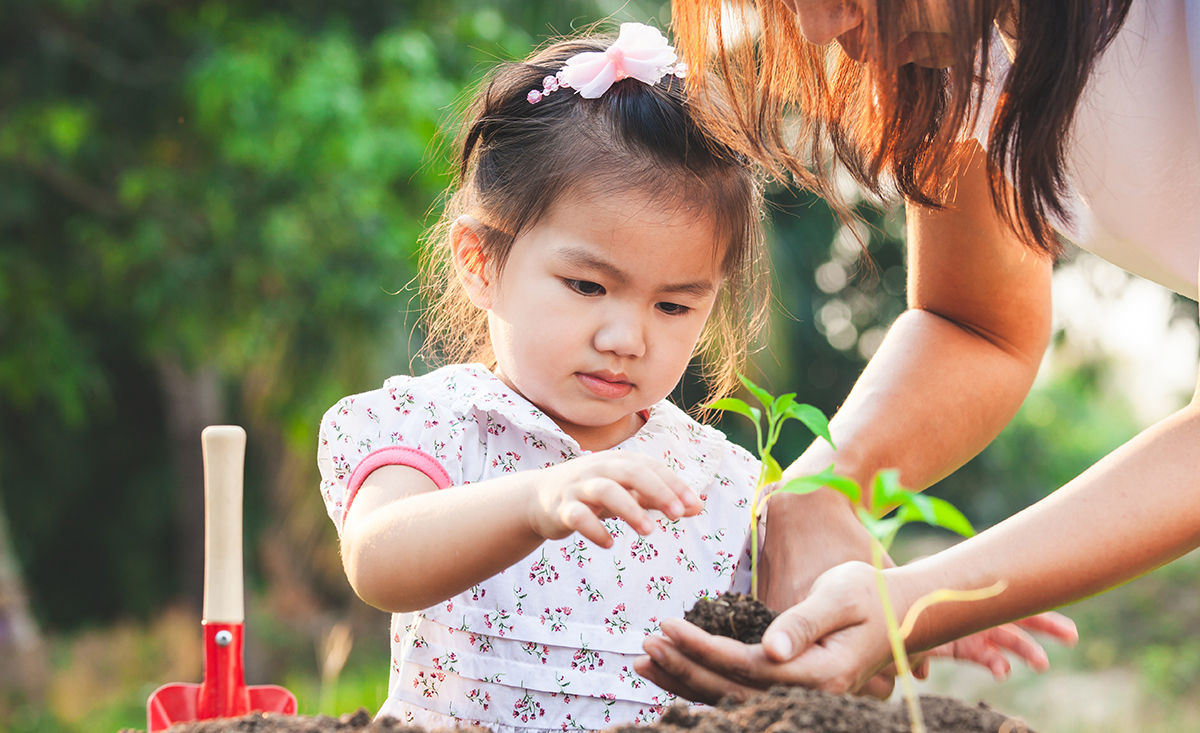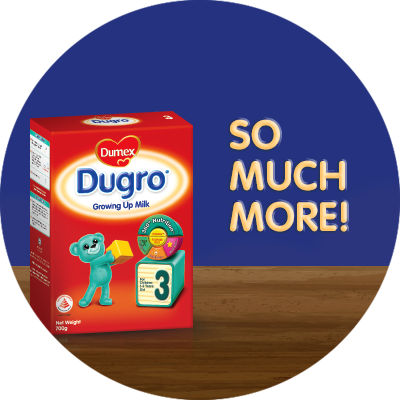Breastfeeding is the best for babies and a healthy diet / maternal nutrition is important when breastfeeding. A decision not to breastfeed can be difficult to reverse. Infant formula is suitable from birth when babies are not breastfed. It is recommended that all formula milks be used on the advice of a doctor, midwife, health visitor, public health nurse, dietitian, pharmacist, or other professional responsible for maternal and child care and the financial implications should be considered. All preparation and feeding instructions should be followed carefully as inappropriate preparation could lead to health hazards.
The Importance Of A Safe & Nurturing Environment for A Growing Child
Parenthood can be daunting – even more so for new parents. There’s always the phase of uncertainty, such as wondering if you are making the right decisions. On top of all of that, parents have to worry about the well-being of their child and the environment they grow up in. The environment we grow up in often shapes our personality and behaviour. This means that it can go both ways, which is why providing a nurturing environment for your growing child is and always should be the number one priority of all parents alike.
WHAT IS A NURTURING ENVIRONMENT?
A nurturing environment is an environment where children feel secure—both emotionally and physically—and have the opportunity to discover the world at their own pace.
WHY IS A NURTURING ENVIRONMENT IMPORTANT?
Having such an environment is important because a growing child will experience all kinds of challenges, particularly because they have yet to fully develop their communication skills. When we don’t understand what they are trying to convey, they will retaliate. This translates into an increased likelihood of your child having temper tantrums, among other expressions of dissatisfaction.
HOW IS A NURTURING ENVIRONMENT DIFFERENT?
It is common for parents to punish their children for their wrongdoings. Some parents also have the tendency to compare their children with others. Although these parenting skills are not advisable, they aren’t always intentional2. However, we can never underestimate nor ignore the negative effects these actions have on a child. A nurturing environment promotes different approaches to disciplining, rewarding and caring for children.
I. DISCIPLINING
When it comes to disciplining your child, punishing them—in any form—should be reserved for the worst case scenario. It’s wise to understand the reason behind their actions before making a decision by consulting them. By doing so, your child will know that they are being heard and understood. Instead of jumping to conclusions and punishing them, make time to listen to them and offer constructive advice. This applies to toddlers as well. If you are limited to just your actions, demonstrate the correct way to behave while verbally explaining it to your toddler with simple words and gestures.
II. REWARDING
Rewarding is a form of positive reinforcement. Positive reinforcement involves giving something (usually a reward) to someone when they perform the desired action. This associates the reward with the action, making them want to perform the action repeatedly in order to receive the reward over and over again. However, there is a common misconception that rewards are always monetary possessions, which is untrue on all accounts.
In a nurturing environment, positive reinforcement is used to reinforce good behaviour, and it presents itself in the form of an encouragement, acknowledgement or compliment. For instance, when your children successfully completes a new and unfamiliar task, congratulate them and give them a hug. Positive reinforcements can also be used to reward a change in behaviour. For instance, if your child apologizes after doing something wrong, let them know that they are doing the right thing by rewarding them for it.
III. CARING
In general, caring for your children means giving them your undivided attention. While that holds true in the context of a nurturing environment, you will need to learn how to draw the line. Being a parent, we have the tendency to worry too much and amplify every little mishap, such as when they drop a cup or when they trip and fall while running.
In a nurturing environment, caring for your children also means trusting that your child will find ways to make things work. For instance, trusting that they can get back up on their own after falling. Caring for your child also means letting them know that you will be there when they need you. This means making time for the important moments in their lives, such as their first day of preschool or kindergarten.
In a nurturing environment, caring for your children also means trusting that your child will find ways to make things work. For instance, trusting that they can get back up on their own after falling. Caring for your child also means letting them know that you will be there when they need you. This means making time for the important moments in their lives, such as their first day of preschool or kindergarten.
Ensuring that your child grows up healthily is also part of providing a nurturing environment, and you can count on Dumex to provide the essential nutrients that will support your child’s growth. Introducing the all-new Dumex Mamil Gold, a source of nutrition that your child can count on as they continue to grow and develop.
For more information on Dumex or Dumex Mamil Gold, visit www.dumex.sg now. Free samples are available too!
REFERENCES:
- Leo, P. (n.d.). Creating More Nurturing Environments for Children. Retrieved August 03, 2020, from https://www.naturalchild.org/articles/guest/pam_leo3.html
- Arora, M. (2020, February 14). 16 Signs of Bad Parenting & Its Impact on Children. Retrieved August 04, 2020, from https://parenting.firstcry.com/articles/bad-parenting-signs-effects/


Ask Our Careline
Whatever’s on your mind, we’re here to help




